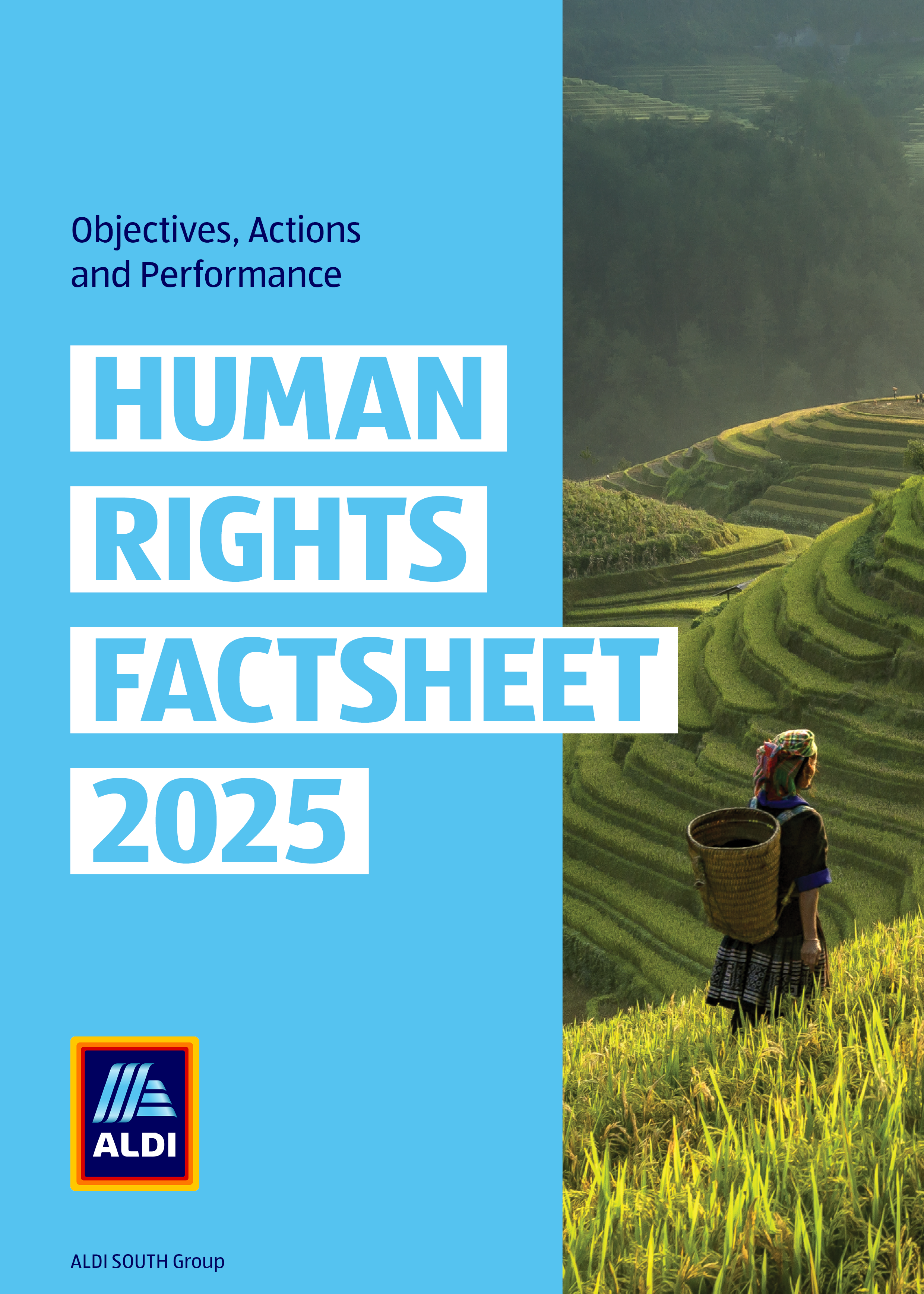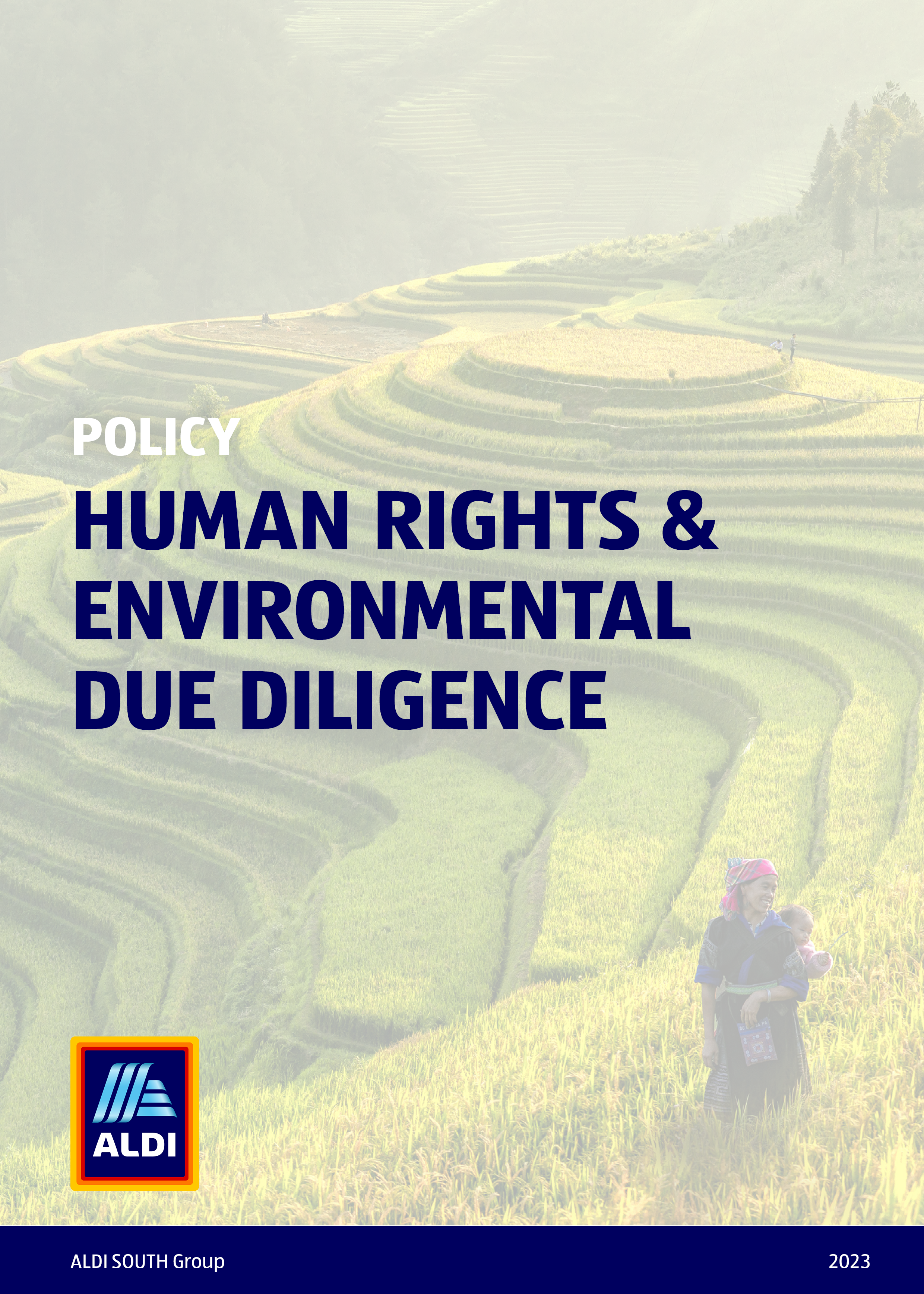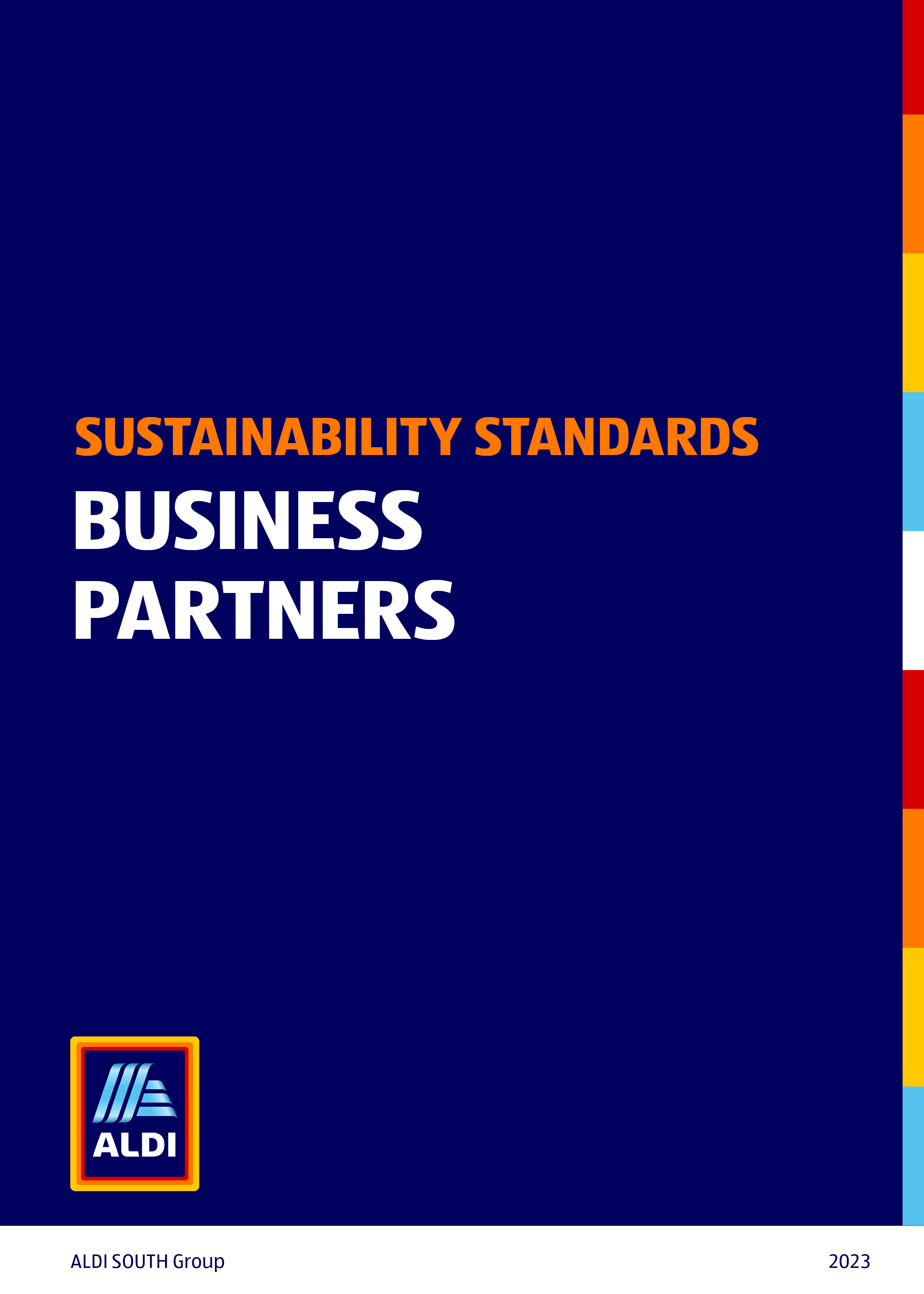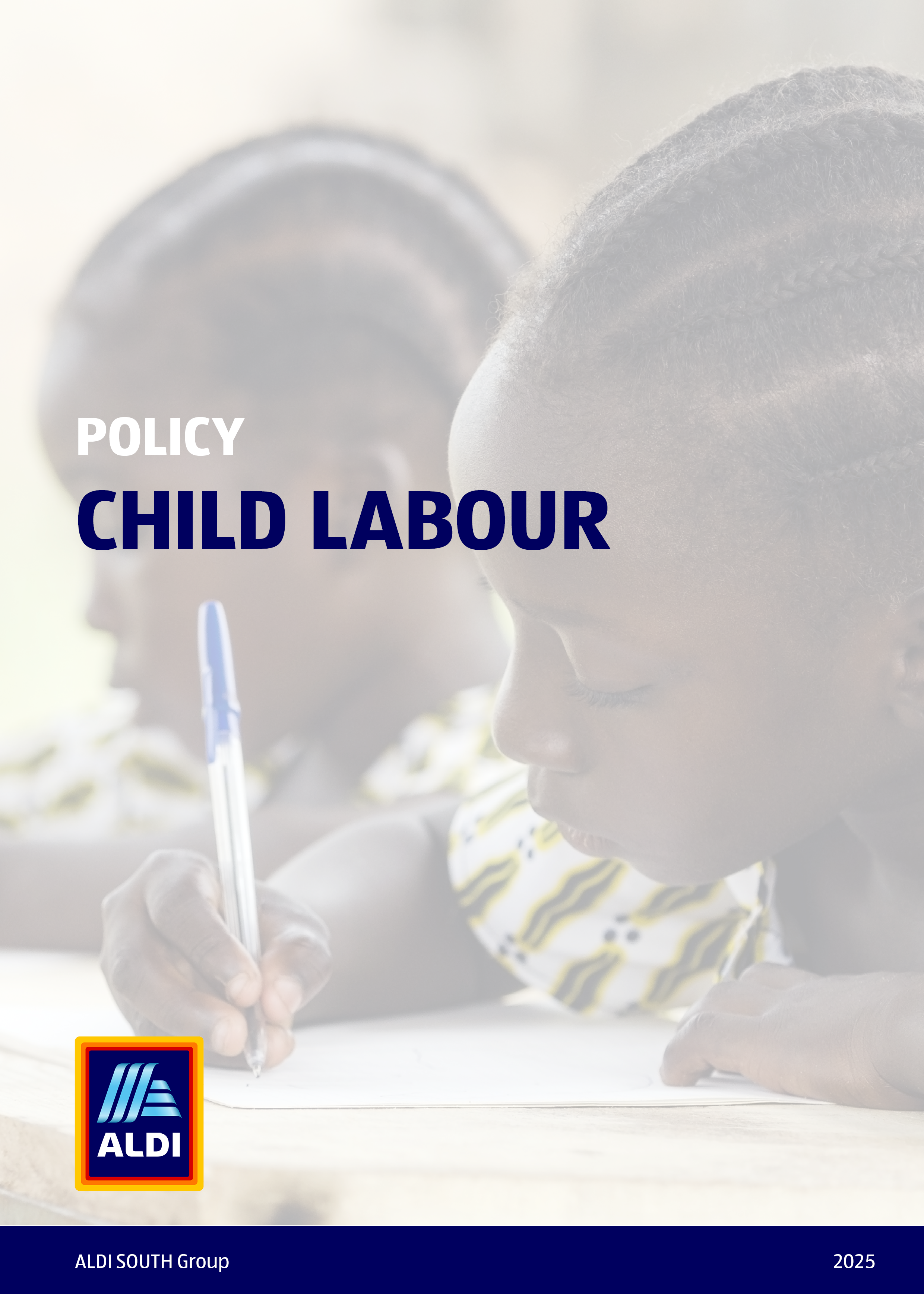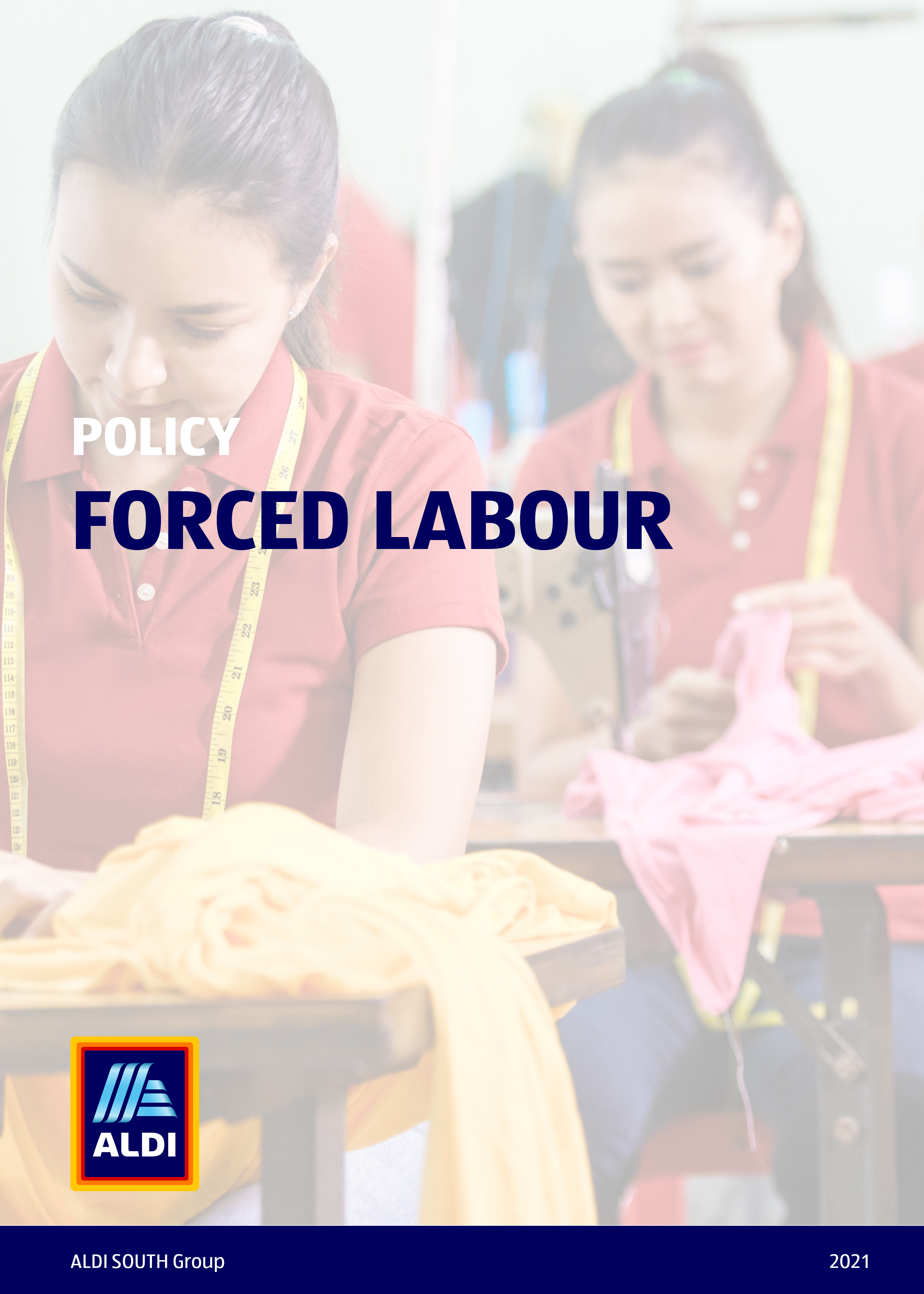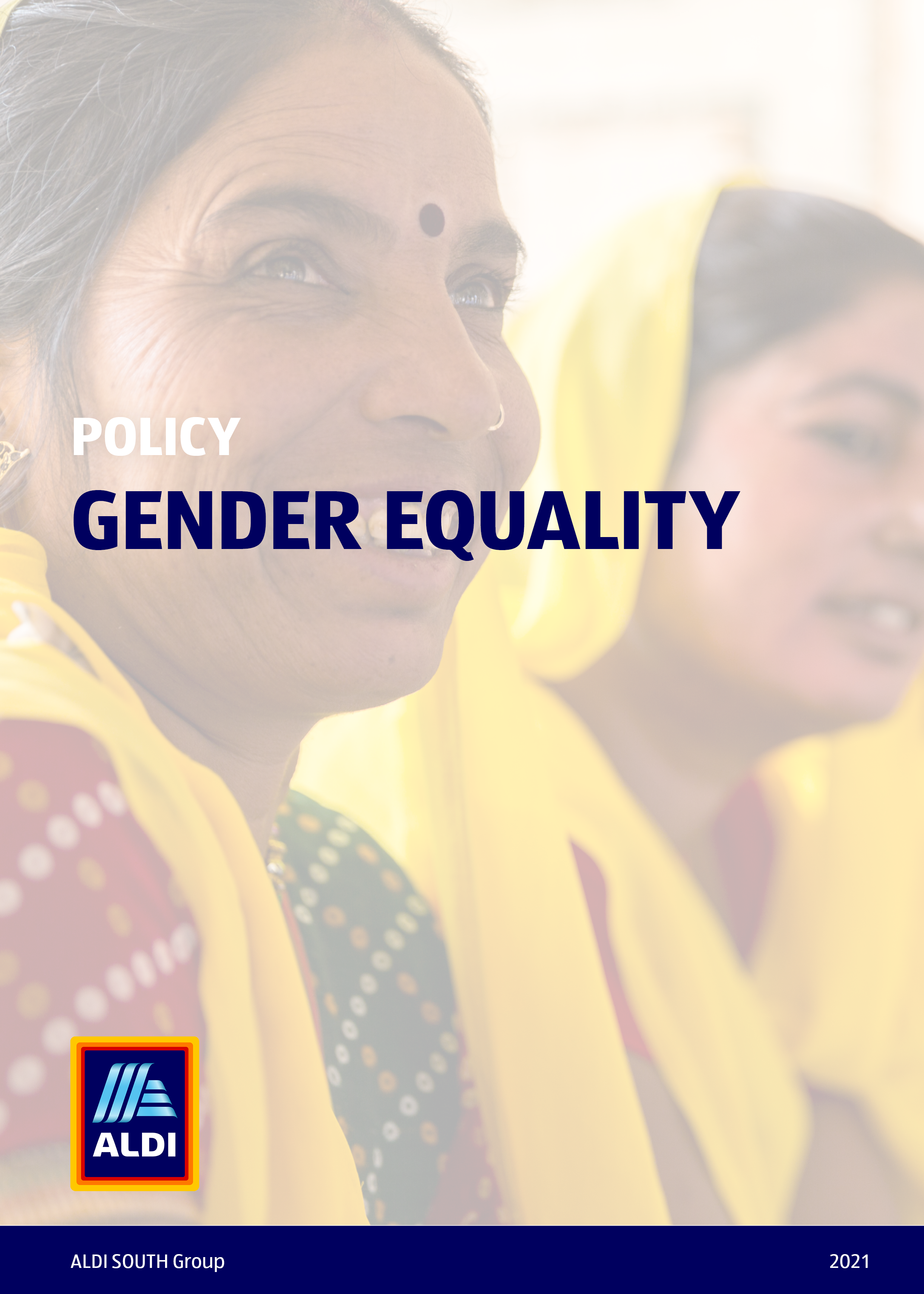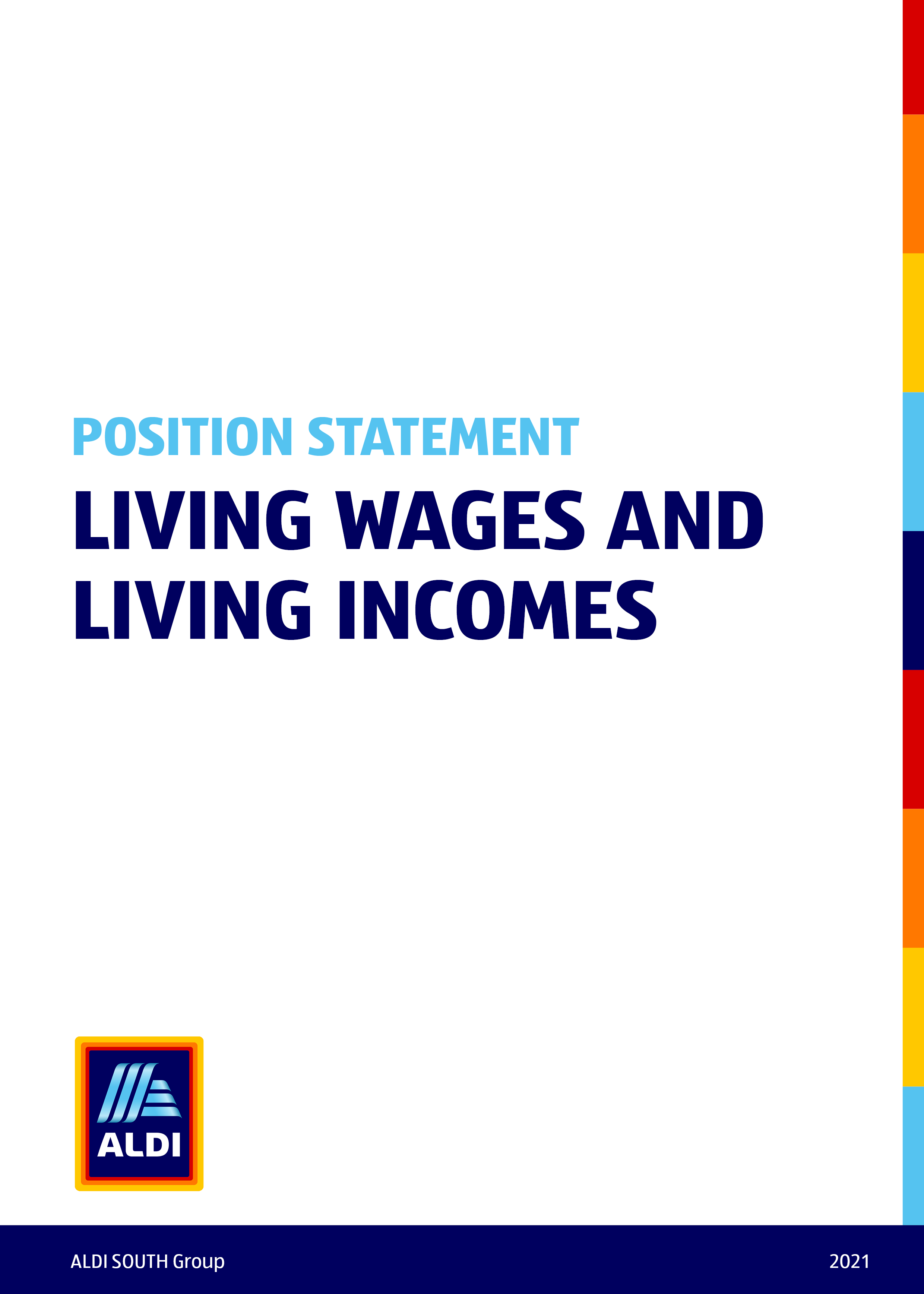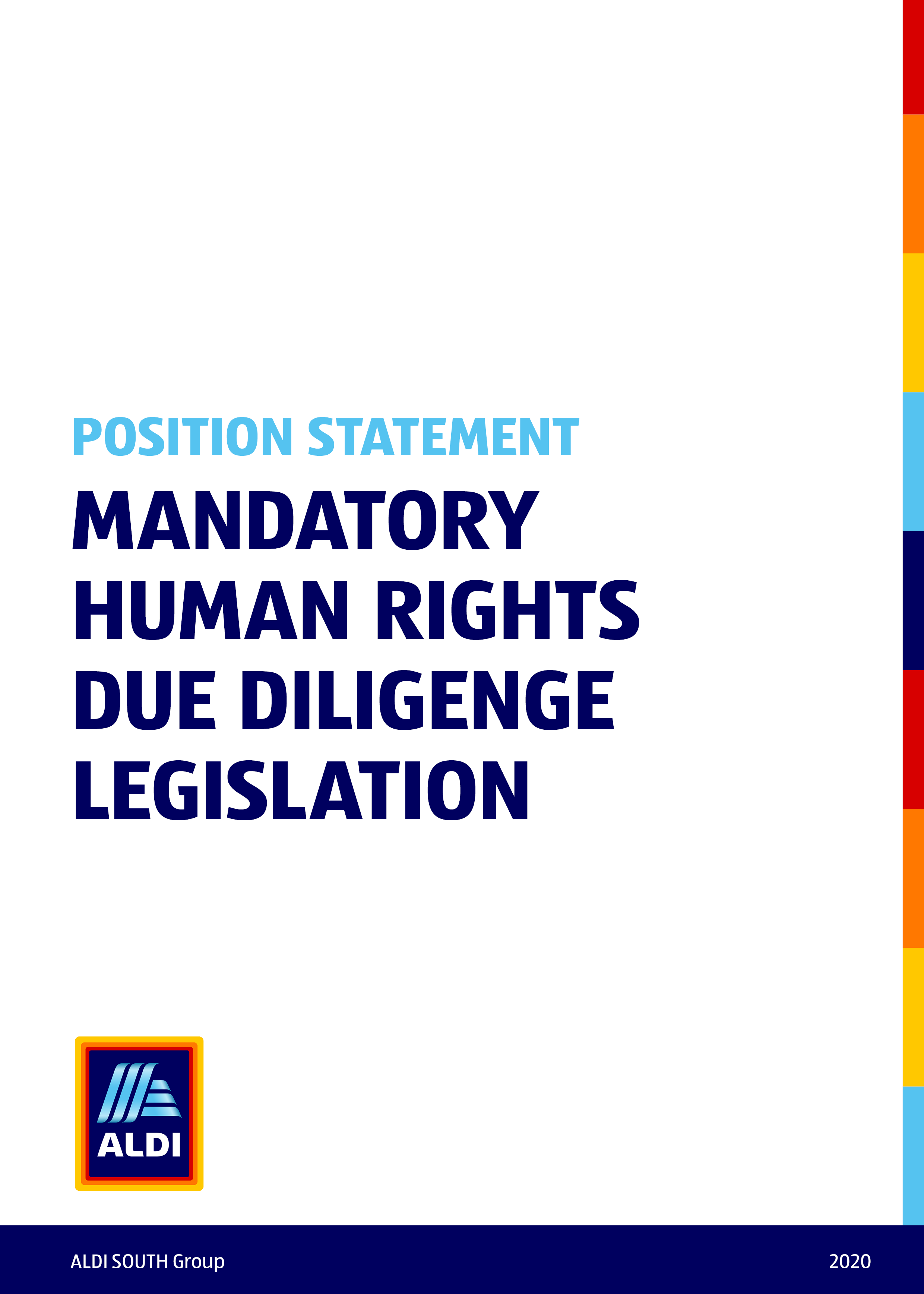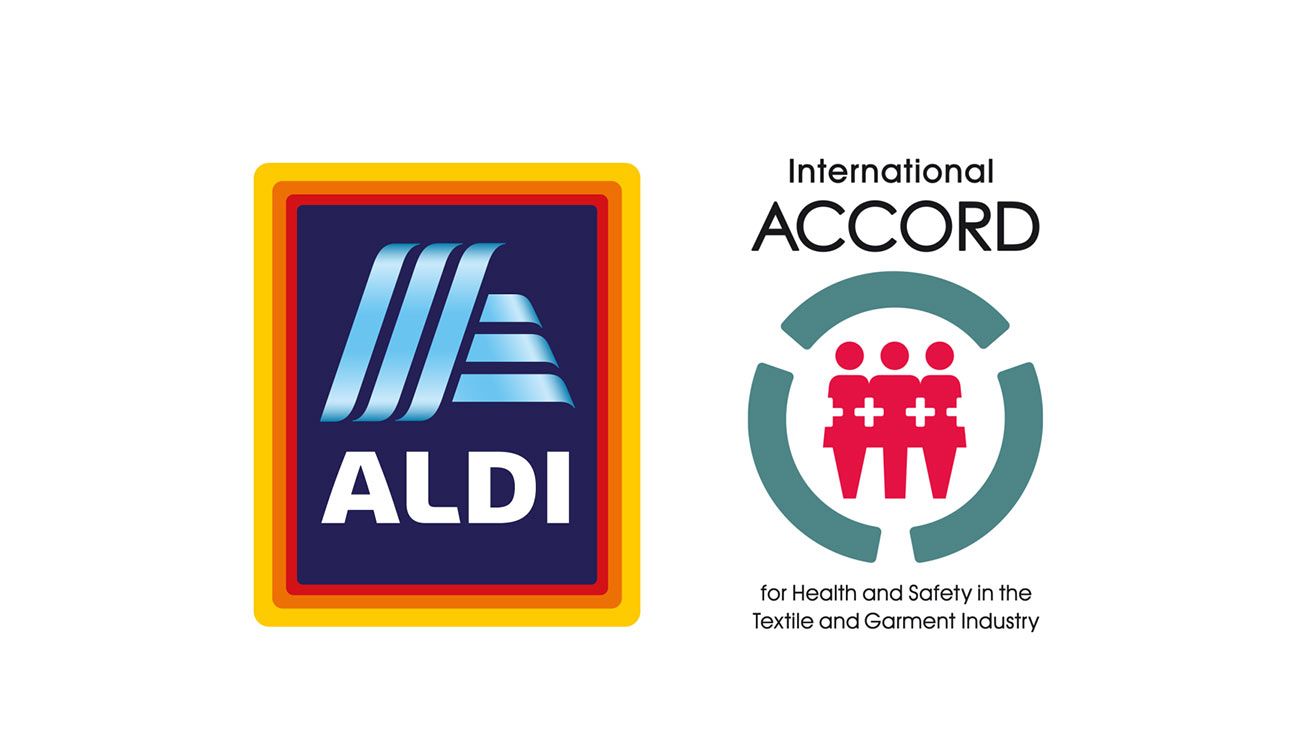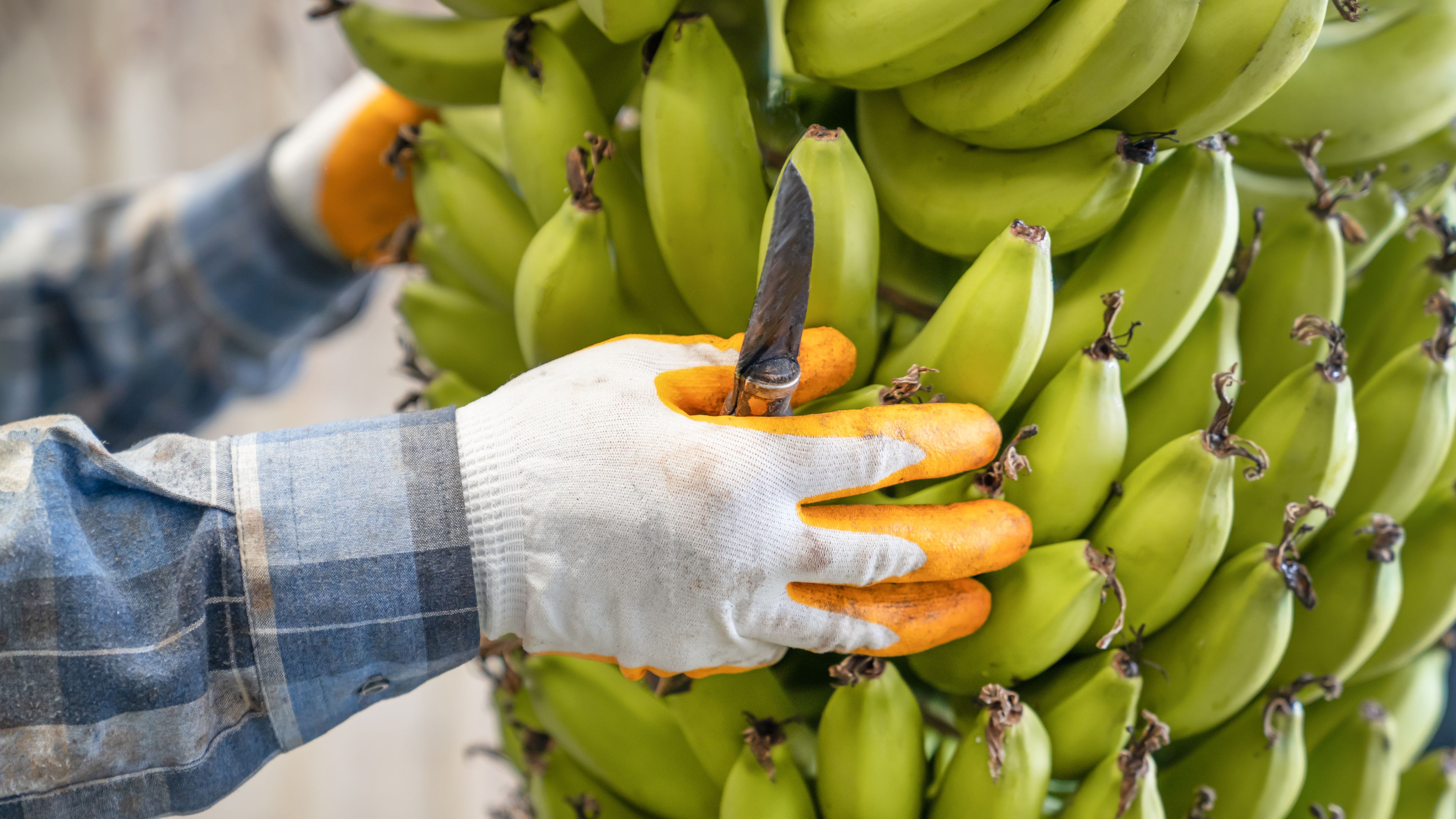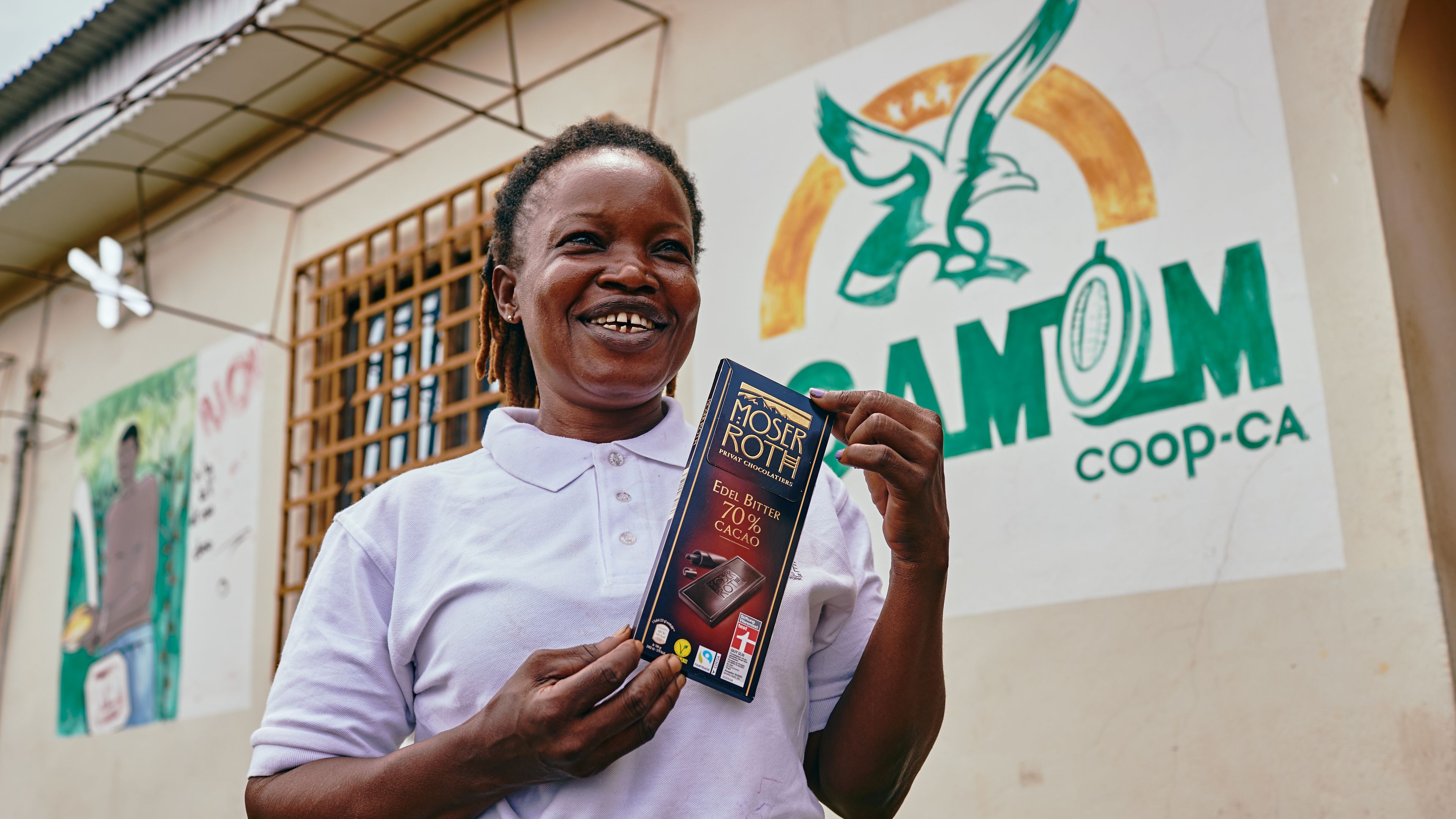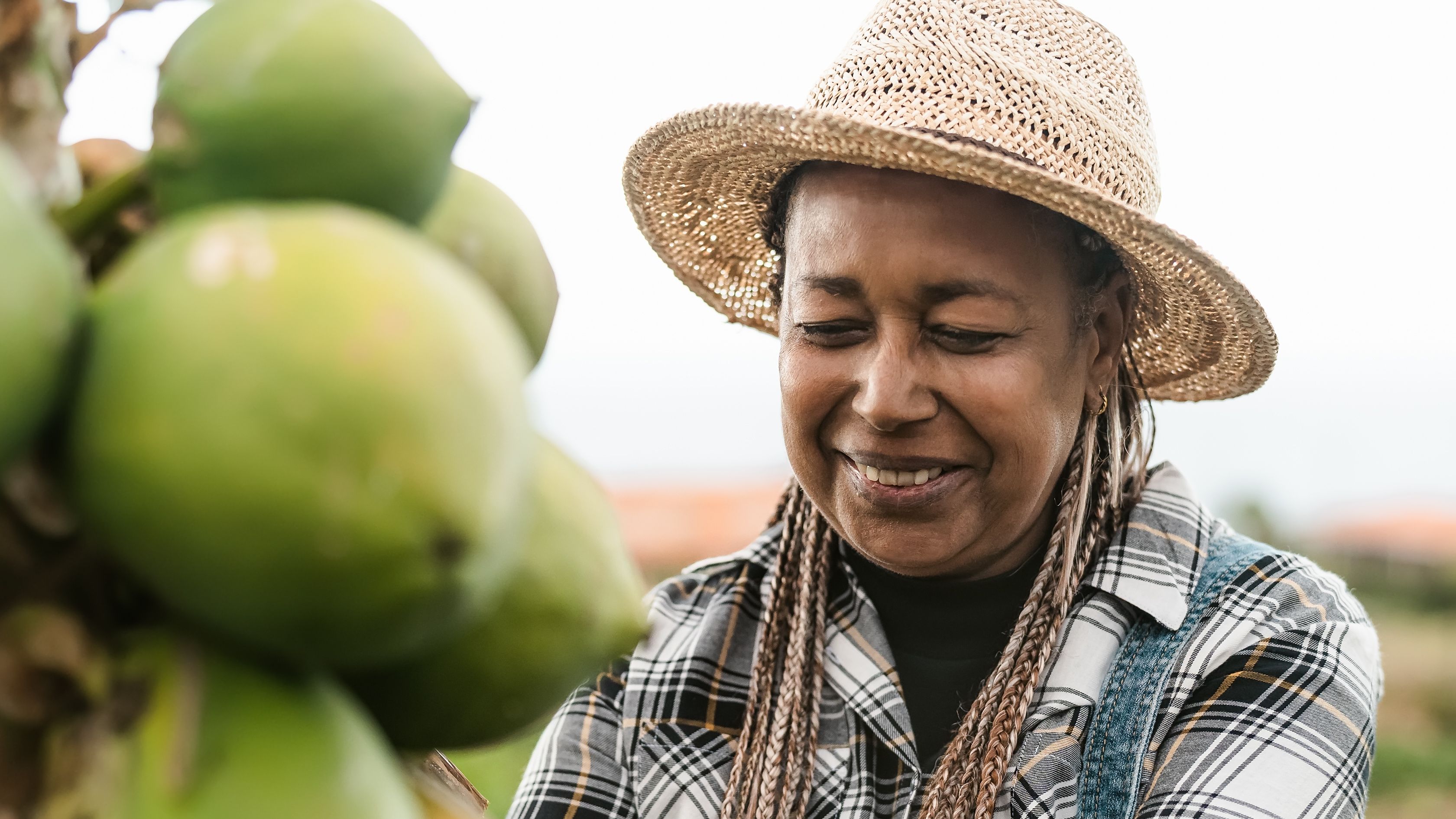
Human Rights are an important dimension of ALDI’s Global Sustainability Strategy, since the way we operate, purchase goods, and the business partners we choose could impact human rights across our own operations and supply chains.
Respecting human rights
The responsibility to respect human rights is a global standard of expected conduct for all businesses wherever they operate. As an international business with global supply chains, the ALDI SOUTH Group is committed to respecting human rights in its own activities and throughout its supply chains.

Our approach to due diligence
Due diligence means that we systematically monitor and assess human rights and environmental risks in our supply chains.This enables us to comply with due diligence legislation and meet our broader human rights and environmental commitments. We are constantly reviewing our approach to keep up with the growing body of legislation, such as the existing Modern Slavery Acts in the UK and Australia, the German Supply Chain Act (LkSG) and the forthcoming EU ban on forced labour products and the EU Corporate Sustainability Due Diligence Directive.
Our Human Rights and Environmental Due Diligence Policy governs all ALDI SOUTH Group policies, requirements, and processes surrounding human rights topics. It was developed in alignment with the UN Guiding Principles on Business and Human Rights, the OECD Guidelines for Multinational Enterprises, and relevant International Labour Organisation (ILO) standards.
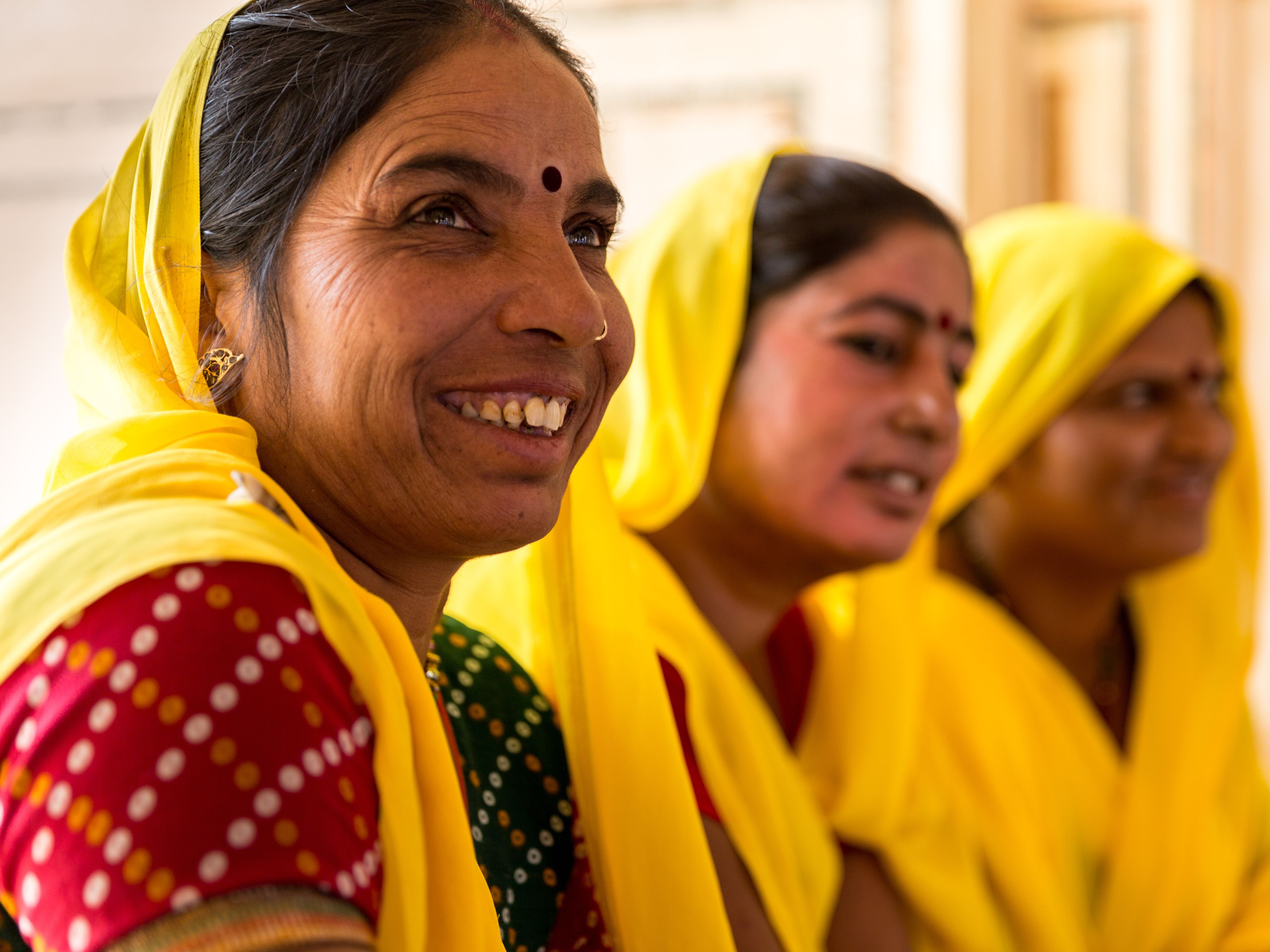
Our stances and commitments on human rights
ALDI has developed a due diligence approach governing all policies, requirements, and processes affecting human rights and the environment in its supply chains.
We place high importance on the prevention, identification, and remediation of child labour.
The right to freedom from modern slavery and forced labour is non-negotiable for the ALDI SOUTH Group.
We are committed to promoting gender equality, specifically the rights of women working in our supply chains.
Supporting living wages and living incomes is an important step towards more responsible purchasing.
The introduction of corporate mandatory due diligence into legislation is an important building block for the realisation of human rights along international supply chains.
Our commitment to supply chain transparency
Supply chain transparency is the foundation of all our sustainability efforts. Without knowing where our products come from, we cannot ensure compliance, analyse risks, monitor or implement projects. We work with our business partners to increase the transparency of our supply chains so that we can better understand the origins of the raw materials we use in our products and the products we sell.

Respecting human rights in our global supply chains
Through our own operations and global supply chains, our business impacts nearly the entire spectrum of internationally recognised human rights. These include, but are not limited to non-discrimination, health and safety, freedom of association, the right to fair remuneration and the prohibition of human trafficking, child labour and forced labour.
We conduct risk analyses and Human Rights Impact Assessments to identify actual and potential risks. Key focus areas have already been identified, including cocoa, coffee, nuts, tea, tropical fruit, produce from Italy and Spain, fish, and seafood. At the production facility level, our sustainability strategies put a focus on garment and household textiles, shoes, and toys.
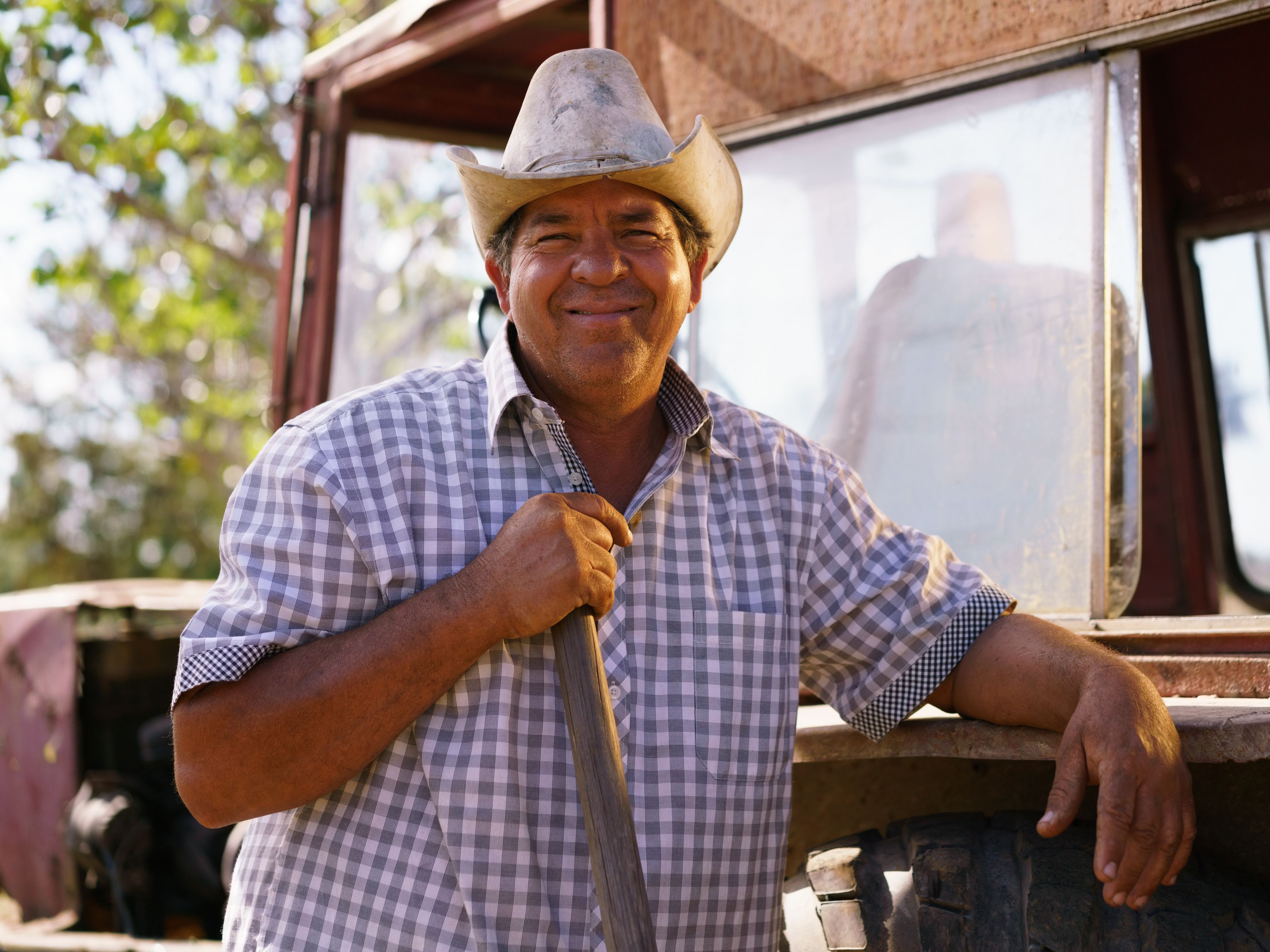
Human Rights Impact Assessments
We are committed to ensuring that the conditions under which food and non-food products are produced respect human rights. ALDI's Human Rights Impact Assessments (HRIAs) are an important step towards greater transparency into supply chains and understanding our impact on human rights of affected workers and communities. Supply chain transparency is the foundation of all our sustainability efforts. Without knowing where our products come from, we cannot ensure compliance, analyse risks, monitor or implement projects. We work with our business partners to increase the transparency of our supply chains so that we can better understand the origins of the raw materials we use in our products and the products we sell.
How does ALDI hold its suppliers accountable?
The ALDI Business Partner Sustainability Standards (formerly Social Standards in Production) outline our minimum requirements for ALDI’s supply chains. They cover such topics as non-tolerance for forced labour, child labour and discrimination, as well as requirements around environmental stewardship, freedom of association and occupational health and safety.
We have also developed specific policies on salient risks such as child labour and forced labour and developed several tools and programmes to address supply chain risk. This includes the Corporate Responsibility Supplier Evaluation (CRSE) program. The CRSE is being implemented in relevant high-priority supply chains to focus our buying volume on suppliers with strong CR management systems.
Our two Corporate Responsibility (CR) Units, based in Hong Kong SAR, China, and Bangladesh, monitor compliance of suppliers and production sites with our sustainability requirements by conducting ALDI Sustainability Assessments, and assist suppliers in the implementation of human rights and environmental standards. The two ALDI CR Units are part of a joint venture between the ALDI SOUTH Group and ALDI Nord, through ALDI CR-Support Asia Limited.
Driving change through partnerships
Many human rights challenges in supply chains (such as paying below the minimum wage) are systemic and can only be addressed collectively as an industry. We will use our purchasing power and work closely with companies and external partners to leverage the momentum of increasing regulatory requirements to drive change.
Our strategy is to create leverage through industry collaboration, industry programmes, multi-stakeholder initiatives and consultation with affected stakeholders by engaging in good faith, effective and informed engagement throughout the due diligence process.
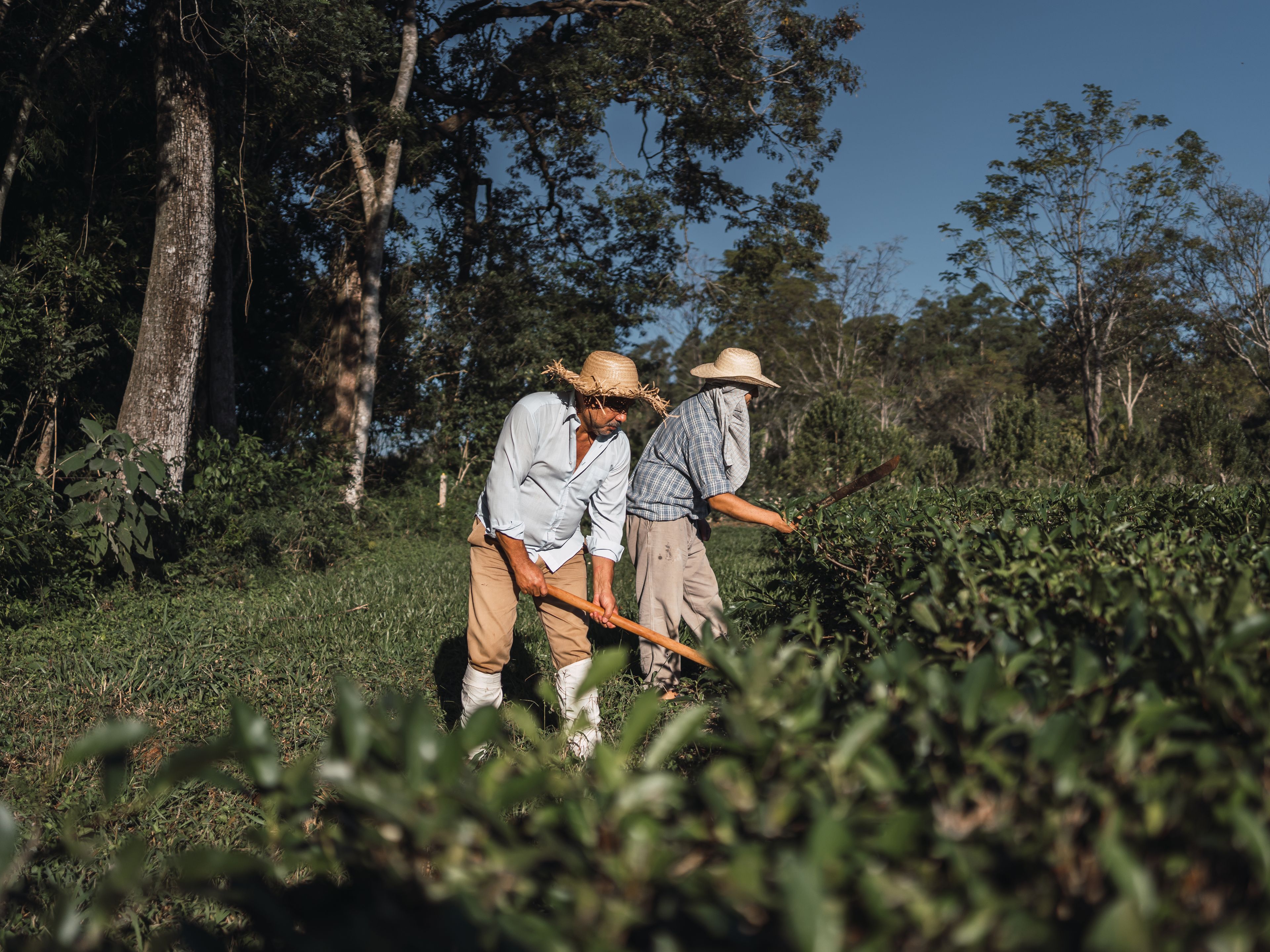
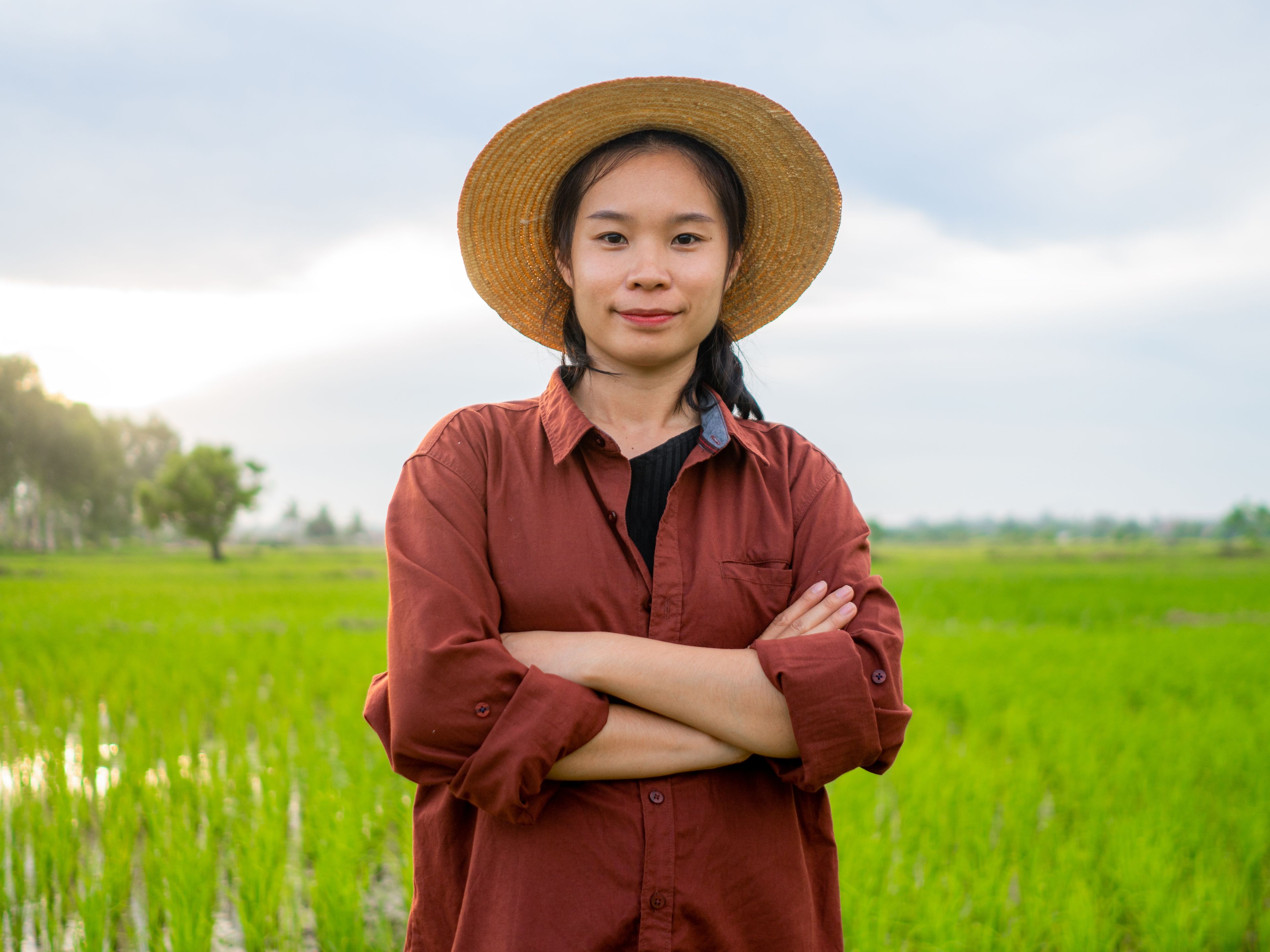
Grievance Channels
In addition to contacting our Counsel of Trust, employees and business partners can also contact the Internal Compliance Department directly in the event of (potential) violations: investigation@aldi-sued.com
Find out more about our policies, initiatives, and projects for human rights. The Human Rights Factsheet provides information about the ALDI SOUTH Group for benchmarking inquiries.
Source: *Forced labour: what is forced labour? | Anti-Slavery International (antislavery.org), **Child Labor Statistics - UNICEF DATA
